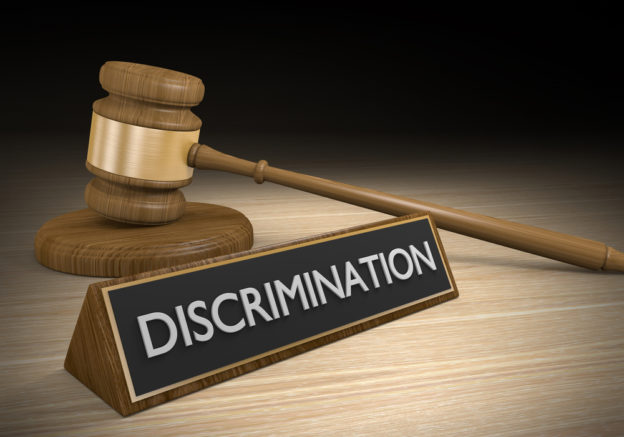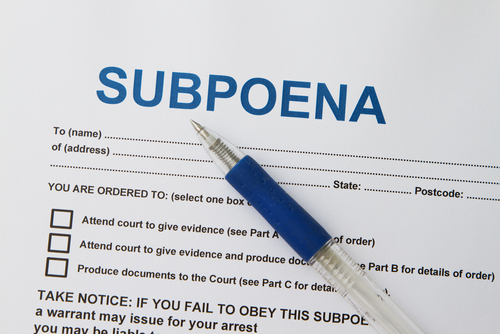 By Brad Cave
By Brad Cave
Is an employer required to excuse misconduct that was the result of the employee’s disability? The Tenth Circuit Court of Appeals recently looked at this issue and came to an interesting conclusion.
Janna DeWitt has Type I diabetes and is insulin dependent. Beginning in 1997, DeWitt worked for Southwestern Bell Telephone Company (SW Bell) as a customer service representative in its Wichita, Kansas call center. Recognizing that DeWitt had a disability covered by the Americans with Disabilities Act (ADA), SW Bell permitted her to take breaks as needed to eat or drink in order to raise her blood sugar level. SW Bell also granted DeWitt FMLA leave which she took intermittently for health issues related to her diabetes.
Last Chance Agreement
In 2010, DeWitt made an error by failing to shut down service on a customer’s account after the customer cancelled service. Failure to remove a service plan after cancellation was known as a cramming violation under SW Bell’s Code of Business Conduct and was a terminable offense. DeWitt was suspended following her cramming incident until she could address the issue with her supervisors in what the company called a “Day in Court.” Her Second and Third Line Supervisors decided to place DeWitt on a Last Chance Agreement under which any additional failure to perform satisfactorily could lead to further discipline, up to and including termination.
Terminated For Hanging Up On Customers
Two months after the cramming incident, DeWitt suffered a severe drop in blood sugar at work which she stated caused her to experience disorientation, confusion, and lethargy, making her unable to communicate with anyone. After DeWitt found that she was locked out of her computer, she contacted her First Line Supervisor, Tom Heumann, for assistance. Heumann did not address her locked computer but instead told the Center Support Manager, Beth Kloxin, that he had been monitoring De Witt’s calls and found that she had hung up on at least two customers. Kloxin responded by saying “I finally got that bitch” and did a little dance.
Later that day, Heumann and Kloxin met with DeWitt for a suspension meeting because of her two customer hang-ups. A union steward also attended the meeting. DeWitt explained that she did not remember taking the dropped calls and that she had been experiencing very low blood sugar levels at the time. Although they reviewed recordings of the dropped calls, DeWitt still did not remember them and asked if they were sure that the calls were hers. Heumann then told DeWitt that she was suspended and that a “Day in Court” would be held at a later date. In response to a request from Kloxin and the union steward, DeWitt provided her blood sugar levels for that afternoon.
About a week later, SW Bell held DeWitt’s “Day in Court.” DeWitt again explained that she did not remember taking the calls due to a severe drop in her blood sugar. Five days later, SW Bell terminated DeWitt for hanging up on two customers in violation of the company’s Code of Business Conduct and her Last Chance Agreement.
ADA and FMLA Claims
DeWitt filed discrimination charges with the Equal Employment Opportunity Commission (EEOC) and after receiving her notice of right to sue, filed a lawsuit against SW Bell in federal court. She alleged that the company failed to accommodate her disability and terminated her because of her disability in violation of the ADA, and retaliated against her for taking FMLA leave. After the district court ruled in favor of SW Bell on all of her claims on summary judgment, DeWitt appealed to the Tenth Circuit Court of Appeals (whose decisions apply to Colorado, Utah, Wyoming, Oklahoma, Kansas, and New Mexico).
Employer Need Not Excuse Or Overlook Misconduct
DeWitt asserted that SW Bell failed to accommodate her disability by not excusing her dropped calls which she says were caused by her disability. The Court disagreed, stating that the ADA does not require employers to reasonably accommodate an employee’s disability by overlooking past misconduct, even when the misconduct is caused by the disability. Instead, the Court cited the EEOC’s ADA Enforcement Guidance which states that reasonable accommodations are “always prospective.”
The Court found that DeWitt had not requested a reasonable accommodation to address concerns that her diabetes could cause her to drop calls. Using a disability as an “after-the-fact excuse” for workplace misconduct is unreasonable and employers need not ignore or overlook past misconduct. Therefore, because asking for retroactive leniency is not a reasonable ADA accommodation, DeWitt’s accommodation claim failed.
Decision-Maker’s Honest Belief In Termination Reasons
On DeWitt’s ADA termination claim, the Court assumed (without deciding) that DeWitt had established that she was a disabled person under the ADA, and was qualified to perform the essential functions of her job. The Court also accepted that SW Bell had provided a legitimate, non-discriminatory reason for terminating DeWitt, namely that she had hung up on at least two customers while on a Last Chance Agreement. To prevail, DeWitt needed to show that SW Bell’s stated reasons for her termination were pretext for discriminating against her.
DeWitt argued that dropping the calls was not intentional but instead, was a result of her disability – her severely low blood sugar at the time. The Court said that didn’t matter. Instead what mattered was whether the decision-maker, Kimberly Baskett-McEnany, who was DeWitt’s Third Line Supervisor, honestly believed that the hang-ups were intentional and acted on that belief in good faith. Finding no evidence to undercut Baskett-McEnany’s belief, the Court ruled that DeWitt’s ADA discrimination claim failed.
FMLA Retaliation Claim Also Fails
DeWitt also argued that SW Bell terminated her in retaliation for her use of FMLA leave. She offered evidence from a former manager at the call center who stated that employees who used FMLA leave were targeted as employees that should be terminated and that the company would look for other reasons to terminate such employees. DeWitt also pointed to Kloxin’s response to Heumann’s revelation that DeWitt had hung up on customers, saying “I finally got that bitch,” as evidence that SW Bell terminated her for using FMLA leave.
Again, the Court rejected DeWitt’s arguments and her FMLA retaliation claim. The Court stated that the former manager’s comments about the company targeting employees who used FMLA leave was no more than speculation, as that person had no knowledge of and was not involved in the company’s decision to terminate DeWitt. In addition, the Court determined that Kloxin’s subjective beliefs were irrelevant as she was not the person who decided to terminate DeWitt. Finding no evidence to send DeWitt’s claims to a jury, the Court upheld the grant of summary judgment in favor of SW Bell on all claims.
Key Lessons
This case highlights some significant management practices that can help defeat discrimination and retaliation claims. First, hold all employees accountable to your standards of conduct. SW Bell terminated DeWitt for violating its code of conduct, providing the necessary legitimate, non-discriminatory reason for actions. In addition, because DeWitt could not provide evidence that other employees who similarly violated the conduct rules were treated more favorably than she was treated, she was unable to show pretext. Second, if a supervisor has a potentially unlawful animus or bias against an employee, take that person out of the decision-making process. Although Kloxin appeared to express animosity against DeWitt (although it is not clear that her animosity was driven by an unlawful motive), she was not involved in the decision to terminate DeWitt and that distinction drove the Court to reject DeWitt’s claims. Finally, remember that a reasonable accommodation applies prospectively. You need not excuse poor performance or misconduct for which no accommodation was requested. That said, when dealing with an employee with a known disability, weigh all employment decisions very carefully and make sure your actions are well supported by your policies and past practices.



 By
By 
 By
By